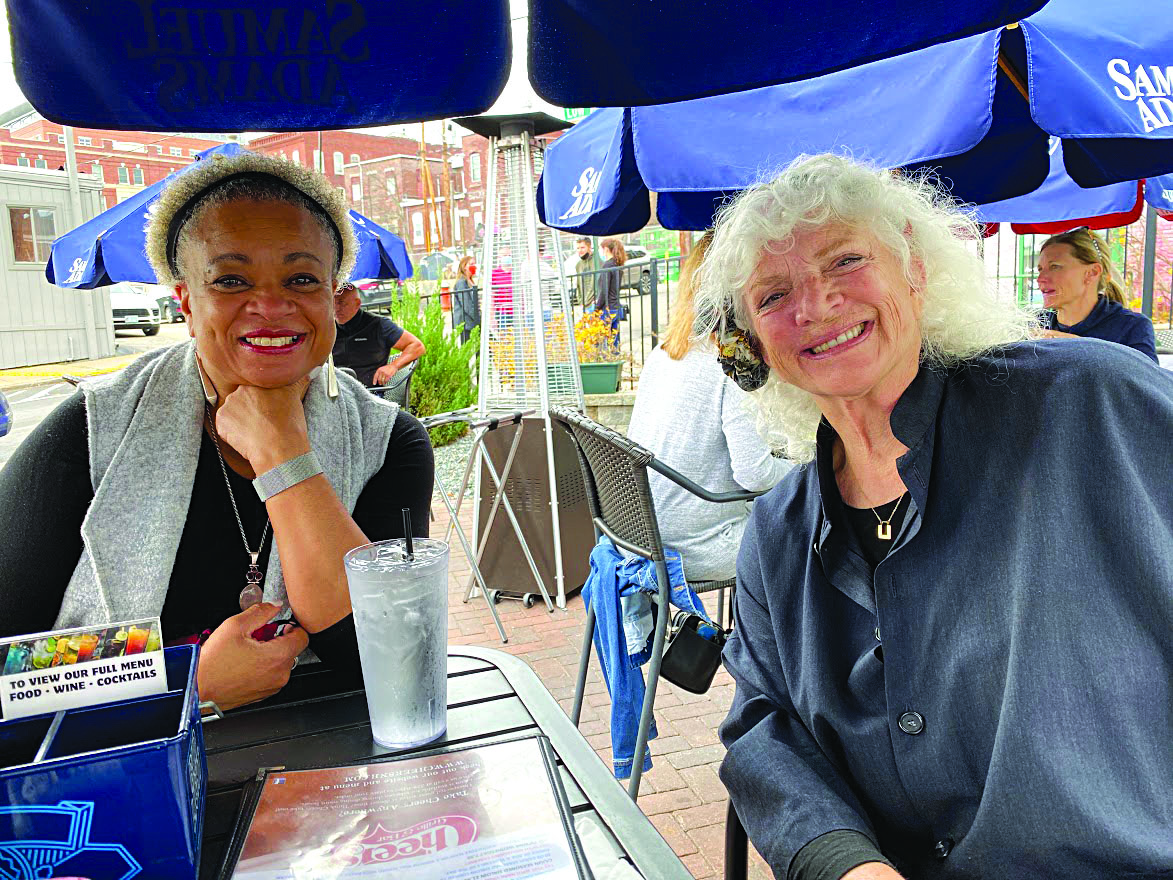Black Heritage Trail of NH receives new sculpture
The Black Heritage Trail of New Hampshire (blackheritagetrailnh.org) now includes the town of Andover, thanks to a local woman’s donation of a sculpture, created by Andover sculptor Winslow Eaves (1922 – 2003), that depicts Marian Anderson (1897 – 1993), an important figure in the struggle for civil rights. The 2.5-foot ceramic sculpture will be on display in the Black Heritage Trail’s permanent collection at its headquarters in Portsmouth, which is set to reopen in the summer if it is safe to do so. The organization’s executive director JerriAnne Boggis talked about the sculpture and what it contributes to the trail.
Who was Marian Anderson?
Marian Anderson was a contralto singer, and she was the first African American woman to sing on the steps of the Capitol — she wasn’t allowed inside the building to sing, so she had to sing on the steps — and the first to sing for a president’s inauguration; it was Eisenhower’s inauguration.
What is her connection to New Hampshire?
The sculptor who made the sculpture of her, Winslow Eaves, was from Hanover, New Hampshire. Marian Anderson has no connection to New Hampshire … but it’s important to remember that New Hampshire is not isolated from the rest of the country. There are connections that we [in New Hampshire] can make with African American history throughout the country; it’s all part of a broader story — a story of justice, of liberty, of overcoming, of resilience, of defiance, of unity.
How did the trail acquire the sculpture?
Dana Dakin, a supporter of the trail and [an advocate for] social justice, had owned the sculpture and donated it to us. Rather than have it in her home for her own enjoyment, she wanted the general public to know the story of Marian Anderson. … She thought now was the time to give it to us, since [the U.S.] now [has] the first woman and first African American woman to become vice president.
What was the artist’s interest in Marian Anderson? What inspired him to create the sculpture?
Dana was trying to find that out, but we have no idea. … I can imagine that, much like our allies today, Eaves was looking at these [African American] histories and voices that speak to us all as humans, but also show us where we are divided. … Overcoming racial prejudices and stereotypes is not something that Black people alone can solve. We need our allies to step up and be voices for change … and art [provides] an opportunity for that. Art has a unifying factor that allows people to come together across all the aisles and through their differences to discuss a common theme.
How does the sculpture and the story of Marian Anderson fit with the trail’s mission?
The stories on the trail aren’t just stories for Black History Month. These are stories of African Americans that speak to the humanness of us all, not just the stereotypes. … Marian Anderson’s story is one of those stories that we as humans can find courage and inspiration from. … If we can create those links and connections [between African American history and all people], we can create more understanding and more inclusiveness.
Why is knowing about African American history important for how we approach the race issues going on today?
If we don’t know where we have come from, how can we know where we’re going? … If you look at the recent happenings in our country and the Black Lives movements, you’ll realize that we have never really dealt with what our history is. We’re still stuck in the same stereotypes of what it means to be Black and American. We’re still stuck in these thoughts of segregation and mistrust. Until we can really look at our past with clear glasses instead of these rose-colored glasses that make us believe all people in America are treated equally and that there’s no systematic racism, we won’t learn. We’ll keep having these divisions and continue the same patterns that have been set up … but if we’re open and honest about what this history is, we can start talking about what racial unity should look like.
Featured photo: JerriAnne Boggis and Dana Dakin. Courtesy photo.



